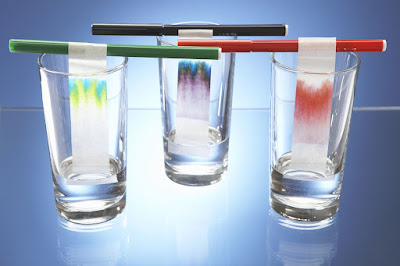Energy Bars - A pocket-sized source of Nutrition
 |
| Energy Bars |
Energy bars have become one of the most popular snacks for people on the go. With its compact size and concentration of nutrients, energy bars offer a convenient way to get the energy boost needed to power through a long day.
What are energy bars?
Energy bars are formulated to provide balanced and sustained energy. They are
dense, portable snacks packed with calories, carbohydrates, protein and other
nutrients like vitamins and minerals. While similar to granola bars and protein
bars in composition, energy bars aim more at providing quick energy rather than
just satiating hunger. They are designed to fuel physical activity or sustain
energy levels between meals. Some key ingredients in energy bars include:
- Oats, nuts and dried fruits: These complex carbs and fiber act as
slow-burning fuel.
- Honey, maple syrup or chocolate: Provides natural sugars for quick boost in
blood sugar levels.
- Soy protein, whey protein or casein protein: Protein helps prevent blood
sugar spikes and provides longer-lasting energy.
- Vitamins and minerals: Includes B vitamins, calcium, iron, magnesium for
overall wellness.
Benefits of energy bars
- Convenient source of balanced nutrition: Acts as meal replacement or
supplement on the go.
- Sustained energy release: Complex carbs and protein provide long-burning fuel
over simple sugars.
- Nutrient density: Packing of nutrients like protein, vitamins, minerals in
small portable package.
- Easy to digest: Formulation makes it less taxing on digestion than heavy
meals.
- Variety available: Can choose from different flavors, ingredients based on
specific nutrition needs.
Key types of energy bars
- Sports nutrition bars: Higher in carbs and sometimes protein to replenish
glycogen stores post-workout or fuel performance. Examples include Clif Bar,
Odwalla Bar.
- Meal replacement bars: Aims to replace a full meal with essential macros and
micros. Examples include ThinkThin Protein Bar, Quest Nutrition Protein Bar.
- Granola/cereal bars: Taste more like breakfast bars but have similar macros
to energy bars. Eg. Kind Bar, Larabar.
- Protein bars: Higher protein usually around 15gms to support muscle recovery
or growth. Eg. PowerBar ProteinPlus Bar, Pure Protein Bar.
- Fruit and nut bars: Less dense and focus more on natural ingredients like
dried fruits, nuts. Eg. Luna Protein Nut Butter Bar, Justin's Nut Butter Bar.
- Cereal/grain bars: Made from simple grains, lower in macros but sources of
fiber. Eg. Nature Valley Granola Bar, Quaker Chewy Granola Bar.
Things to consider when choosing an energy bar
With the many options available, it is important to select the right bar based
on specific requirements:
Nutritional profile: Check macros - carbs, protein, fiber, sugars and whether
suited for one's diet goals.
Taste and texture: Some are very chewy or taste strongly of particular
ingredients like protein powder. Select based on personal preference.
Special dietary needs: Choices for vegetarians, vegans, gluten-free, nut-free
are readily available.
Activity level: Sports bars suit pre/post workout while meal replacement bars
work for those with less active lifestyles.
Size: Bars range from 1.5oz snack size to 3oz+ bigger meal size bars. Consider
portion.
Ingredients: Select most minimally processed bars using whole foods as far as
possible.
Expiry date: Energy bars can last several months if stored well. Check labels
for freshness.
Cost: Prices vary but look at reasonable options based on quality and quantity
provided.
Get More Insights on this Topic- https://www.marketwebjournal.com/energy-bars-a-quick-and-nutritious-snack/



Comments
Post a Comment